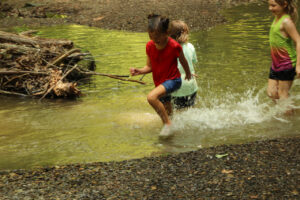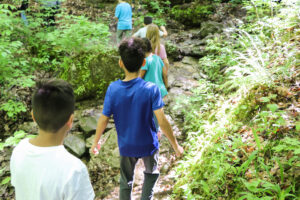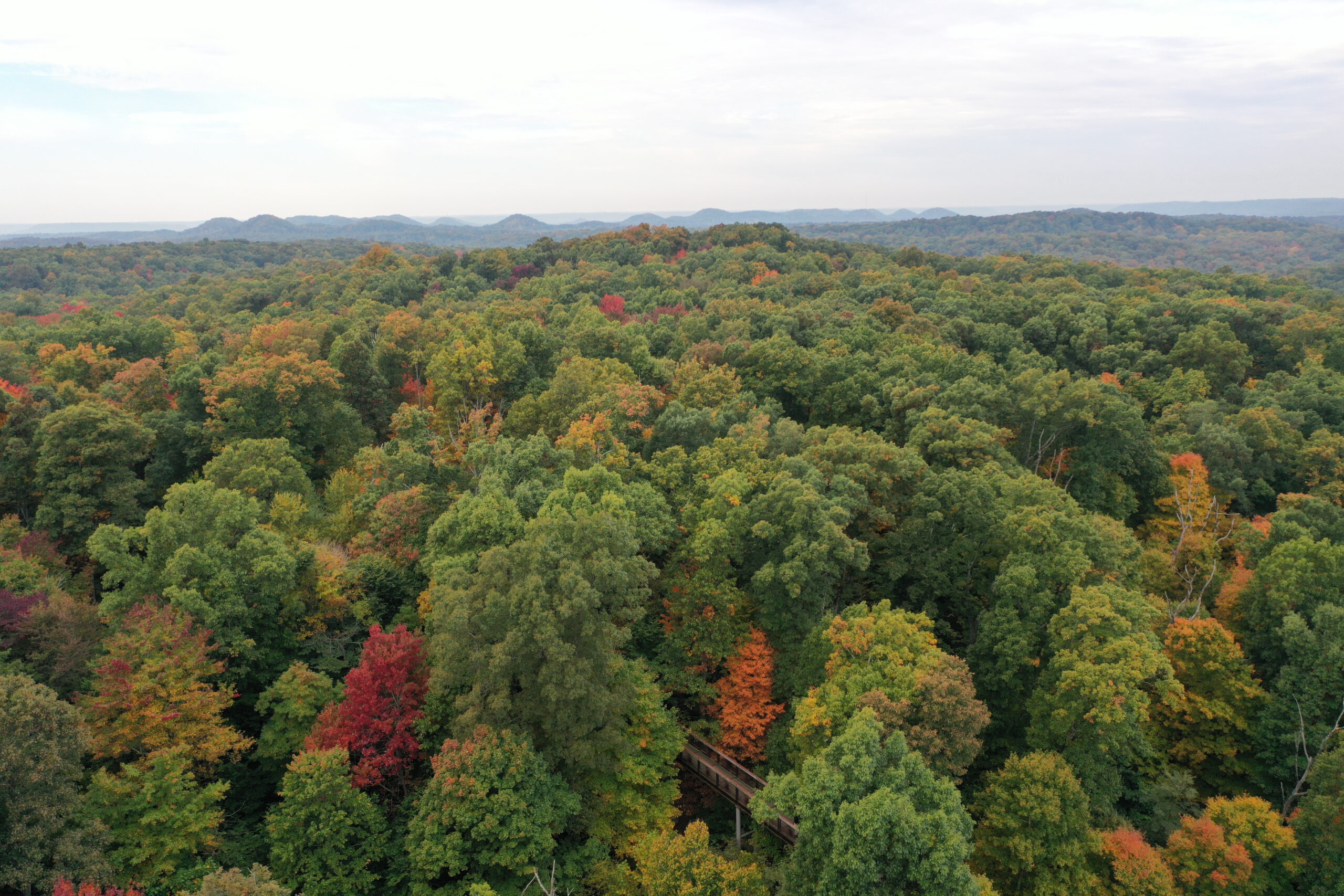By Melissa Rue

Access to clean water and air, shelter, nutritious food, a safe and secure environment, and the support of caring adults are foundational. what may not come as readily to mind is a child’s need for play, particularly outdoors.
The known benefits of free play, or a child’s unfettered agency over their environment, especially in the outdoors, are many. Resiliency, creative problem solving, healthy social and
emotional development, physical and mental health, self regulation skills, healthy risk-taking, improved eyesight, and attention are among them.
“The 2018 Academy of Pediatrics Policy statement The Power of Play: A Pediatric Role in Enhancing Development in Young Children delves into the deep and powerful role of play in child brain development, social and emotional development as well as physical development,” said Dr. Julia Richerson, a pediatrician in Louisville. “And nature-based play specifically has unique neurodevelopmental benefits.”
 Free play in the outdoors is central to healthy child development, which is why Bernheim created the Children at Play Network (CAPN). With its focus on the youngest children, CAPN is a natural extension of Bernheim’s mission of connecting people with nature. The earlier a child is exposed to the joys of being outdoors, the more likely they will develop a lifelong relationship with nature and become environmental stewards.
Free play in the outdoors is central to healthy child development, which is why Bernheim created the Children at Play Network (CAPN). With its focus on the youngest children, CAPN is a natural extension of Bernheim’s mission of connecting people with nature. The earlier a child is exposed to the joys of being outdoors, the more likely they will develop a lifelong relationship with nature and become environmental stewards.
A critical threat to children’s health and their connection to nature is global climate change. Rapidly rising temperatures, impacted directly by human behavior, are resulting in rising sea
levels, flooding, air pollution, drought, wildfires, and food deserts. Last year, the United Nations Children’s Fund reported that half the world’s 2.2 billion children are at “extremely high risk” from its impacts.
Global climate change is cited by the American Academy of Pediatrics (AAP) as the leading public health threat to children, who are uniquely vulnerable. Current data suggest climate
change may lead to increases in asthma and allergies, heatrelated illness, changes in developing brains, and mental illness.
“I have a particular interest in climate change as it relates to child health, and I work to inform my patients, students, and community about climate change as well as how we can take steps to lessen our impact on the environment,” said Libby Mims, MD Assistant Professor of Pediatrics at the University of Louisville and Norton Children’s Medical Group.
The Kentucky Chapter of the Academy of Pediatrics, whose membership includes 85% of the state’s pediatricians, has created a statewide working group to address the growing threat of climate change to children’s health. CAPN representatives and other community partners are members of that working group.
“The Kentucky Chapter of the Academy of Pediatricians is convening community conversations on child health, climate, and the role of the pediatrician in Kentucky,” said Dr. Richerson,
who also serves as the Chapter Climate Advocate for the KY Chapter of the AAP. “Based on the national AAP’s policy guidance for pediatricians’ role in climate change, we are partnering with
people who are experts in these topics and are knowledgeable about the issues in Kentucky. We discuss ideas about the role of the pediatrician and how we can support the great work our
partners are doing. In addition, we share what we are learning with our pediatric colleagues across the state.”
Climate change is also recognized as one of the leading Adverse Childhood Experiences (ACE), which are potentially traumatic events that can lead to toxic stress and interfere with health and stability throughout a lifetime. ACEs also include physical, emotional or sexual abuse, divorce, neglect, a parent’s incarceration, mental illness, or drug or alcohol abuse. Emphasizing outdoor play is one strategy for mitigating the effects of trauma. Play discharges a child’s tension, and spending time outdoors in green spaces creates a connection to the natural environment that reduces stress, and enhances social and mental wellbeing.
“When presented with the tumult and confusion of trauma, it really helps give a young child a safe space and some time for non-directed play,” said Linda A. Engel, L.C.S.W., a child and family therapist in Louisville, Ky., who is active in Community Shield, a collaborative effort to help children exposed to violence.
Robin Schotter, Communications Coordinator at 4-C Community Coordinated Child Care in Louisville, said playing in nature helps restore a sense of balance and control that is often lost when children are exposed to trauma. “They can become completely absorbed in the moment and rediscover wonder and joy.”
But for children to experience the many benefits of play and nature for their healthy development and healing, a healthy environment where they can play is required.
Since climate change is associated with extreme weather events, this natural habitat in which children play is increasingly threatened, according to Dr. Mims.
It seems undeniable that children’s health and the health of the planet are inextricably linked. Children need play in nature and nature needs children – each requires the awareness and
engagement of adults committed to the health of both.
“The Children at Play Network is committed to working at the community level to advocate for free play in the outdoors so that every child has a place in nature where they feel free, safe, healthy, empowered, and joyful.”
– CLAUDE STEPHENS CAPN DIRECTOR OF OUTREACH


